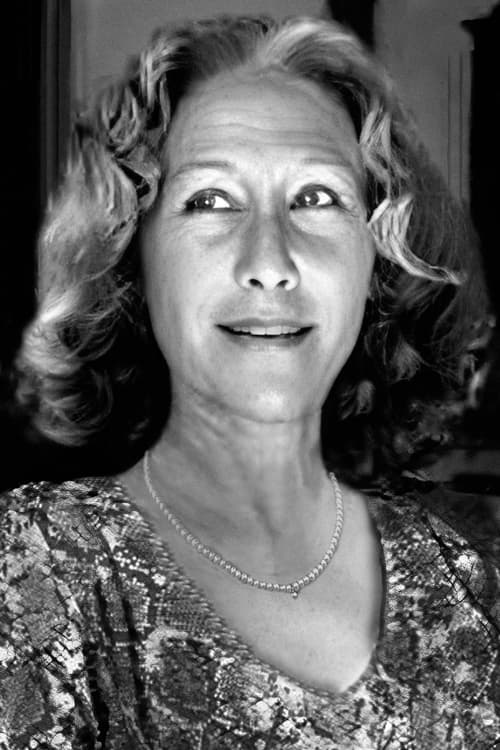
Anne-Marie Miéville
Nacimiento : 1945-11-11, Lausanne, Switzerland
Historia
Anne-Marie Miéville, nacida el 11 de noviembre de 1945 en Lausana, es una cineasta, directora, productora, guionista, actriz y autora de Vaud. Anne-Marie Miéville es fotógrafa y librera. En la década de 1960, también grabó dos CD de variedades para Barclay con canciones de Jean-Jacques Debout. En 1972 conoció en París a Jean-Luc Godard, quien sería su compañero hasta su muerte en 2022. Inicialmente, de 1973 a 1994, trabajó con este cineasta como fotógrafa, guionista, montadora, codirectora y directora artística en algunas de sus películas. En 1983 rodó su primer cortometraje "How Can I Love" y un año después un segundo cortometraje "Le Livre De Marie".
Desde entonces, no ha dejado de hacer cine. A través de sus relatos cinematográficos, cuestiona el amor, el tiempo, el sentido de las cosas con un tono único... Su primer largometraje se llamó "Mi querido tema" y se estrenó en 19883. 1994 "Lou ne dis pas non".
También en 1994, Anne-Marie Miéville publicó Histoire Du Garçon, un texto que narra la carrera y la vida de su hermano Alain, quien murió accidentalmente en 1993. En 1996/1997 se estrenó un nuevo largometraje, Nous Sommes Tous Encore. Here". En 2000 sigue "After Reconciliation", en la que aparece en compañía de Claude Perron, Jacques Spiesser, Jean-Luc Godard y Xavier Marchand.
En 2002 escribió Images In Words, textos breves publicados por Farrago, que según la editorial son "una serie de fotogramas, cortometrajes de escritura". En rigor, no son noticias, sino momentos indescriptibles. perfumes efímeros de imágenes que habría que filmar con palabras.

Director
A special version of ‘Dans le noir du temps’ for viewers in Ramallah and the Gaza Strip.

Director
Cats laying, moving, leading a kind of interlude directed by Anne-Marie Miéville.
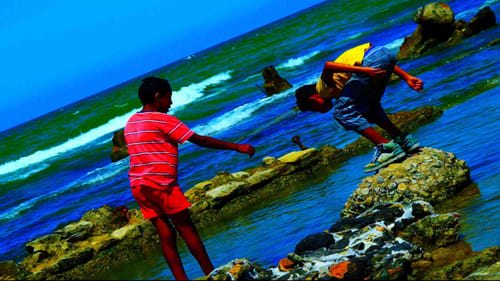
Narrator (voice)
Jean-Luc Godard returns with a bracing, beautiful and confrontational essay film. Splicing together classic film clips and newsreel footage, often stretched, saturated and distorted almost beyond recognition, The Image Book interrogates our relationship with film, culture and global politics.

Rue du Temple, Rolle, Switzerland, June 2013.

Director
Short foundfootage film by Anne-Marie Miéville.

Director
Director Jean-Luc Godard reflects in this movie about his place in film history, the interaction of film industry and film as art, as well as the act of creating art.

Director
Jean-Luc Godard, and Anne-Marie Miéville Four Short Films

Narrator (voice)
Jean-Luc Godard, and Anne-Marie Miéville Four Short Films

Director
Short film by Ann-Marie Mieville on Godard's model for his exhibition "Collages de France"
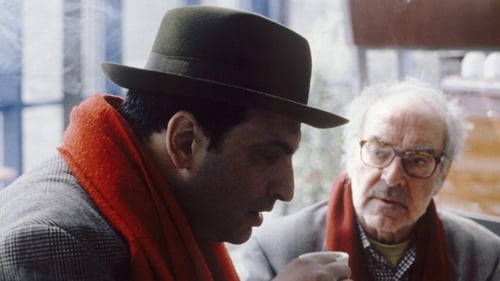
Art Direction
El filme está compuesto de tres partes, respectivamente tituladas: Reino 1. Infierno; Reino 2: Purgatorio y Reino 3: Paraíso. El infierno, de una duración aproximada de siete u ocho minutos, se compone de distintas imágenes de guerra, sin orden cronológico o histórico. Aviones, tanques, buques de guerra, explosiones, fusilamientos, ejecuciones, poblaciones en fuga, campos devastados, ciudades destruidas, etc. Todo tanto en blanco y negro como en color. Las imágenes quedan mudas, acompañadas por cuatro frases y cuatro músicas (piano). El purgatorio, de aproximadamente una hora de duración, se desarrolla en nuestros días en la ciudad de Sarajevo -mártir entre otras - con ocasión de los Encuentro Europeos del Libro. Se trata de conferencias o de simples conversaciones sobre la necesidad de la poesía, de la imagen de uno mismo y el otro, de Palestina e Israel, etc., (FILMAFFINITY)

Screenplay
Consta de varios episodios, cada uno de ellos realizado por un director. El tema es el tiempo. Es el complemento de "Ten Minutes Older: The Trumpet".
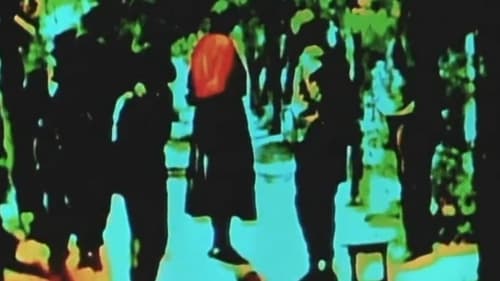
Writer
Conceived as a reflection on the theme of time at the turn of the millennium, "Dans le noir du temps" functions as a Pandora’s box which hides all the horrors of the world: the last moments of youth, fame, thoughts, memory, love, silence, history, fear, eternity and, of course, cinema.
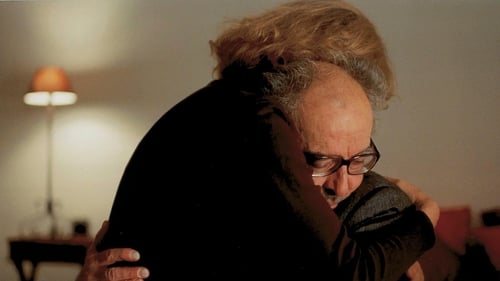
Editor
An elderly couple and a younger man and woman follow up failed seduction attempts with conversation about love and the meaning of life.

La première femme
An elderly couple and a younger man and woman follow up failed seduction attempts with conversation about love and the meaning of life.

Screenplay
An elderly couple and a younger man and woman follow up failed seduction attempts with conversation about love and the meaning of life.

Director
An elderly couple and a younger man and woman follow up failed seduction attempts with conversation about love and the meaning of life.

Editor
Essay on the influence of arts at the end of the 20th century produced by the Museum of Modern Art.

Writer
Essay on the influence of arts at the end of the 20th century produced by the Museum of Modern Art.

Director
Essay on the influence of arts at the end of the 20th century produced by the Museum of Modern Art.

Screenplay
Two housewives discuss philosophical themes (actually an updated dialogue between Plato and Socrates) while doing the house work. The husband of one of them rehearses his part in a theatrical play, reading a 20th century philosophical text about totalitarianism.

Editor
Two housewives discuss philosophical themes (actually an updated dialogue between Plato and Socrates) while doing the house work. The husband of one of them rehearses his part in a theatrical play, reading a 20th century philosophical text about totalitarianism.

Director
Two housewives discuss philosophical themes (actually an updated dialogue between Plato and Socrates) while doing the house work. The husband of one of them rehearses his part in a theatrical play, reading a 20th century philosophical text about totalitarianism.

Editor
At a lakeside hotel, Michel Piccoli discusses the centennial of cinema with Jean-Luc Godard. Godard asks why should cinema's birthday be celebrated when the history of film is a forgotten subject. Through the remainder of his hotel stay, Piccoli tests Godard's hypothesis.

Director
At a lakeside hotel, Michel Piccoli discusses the centennial of cinema with Jean-Luc Godard. Godard asks why should cinema's birthday be celebrated when the history of film is a forgotten subject. Through the remainder of his hotel stay, Piccoli tests Godard's hypothesis.

Screenplay
El film surge de la correspondencia entre Lou Andreas-Salomé y Rainer Maria Rilke; sin embargo, describe instantes y aspectos en la vida de una pareja contemporánea en metamorfosis. Miéville logra mostrar la grandeza y la miseria, la claridad y el misterio. Más allá de las heridas, el tiempo y la guerra de los sexos, lo único que queda es la radiante belleza de las cosas.

Editor
El film surge de la correspondencia entre Lou Andreas-Salomé y Rainer Maria Rilke; sin embargo, describe instantes y aspectos en la vida de una pareja contemporánea en metamorfosis. Miéville logra mostrar la grandeza y la miseria, la claridad y el misterio. Más allá de las heridas, el tiempo y la guerra de los sexos, lo único que queda es la radiante belleza de las cosas.

Director
El film surge de la correspondencia entre Lou Andreas-Salomé y Rainer Maria Rilke; sin embargo, describe instantes y aspectos en la vida de una pareja contemporánea en metamorfosis. Miéville logra mostrar la grandeza y la miseria, la claridad y el misterio. Más allá de las heridas, el tiempo y la guerra de los sexos, lo único que queda es la radiante belleza de las cosas.

Director
Children living and playing in a war zone are touched by violence. Part of How Are the Kids? (1990), a UNICEF-sponsored six-film anthology depicting childhood horrors around the world.

Director
En 1991, la ONG Amnistía Internacional encargó 30 cortometrajes a 30 realizadores franceses, para montar un film colectivo que denunciara casos concretos de violación de los derechos humanos por razones políticas.

Director
A video letter composed for Amnesty International's 'Lest We Forget' series.
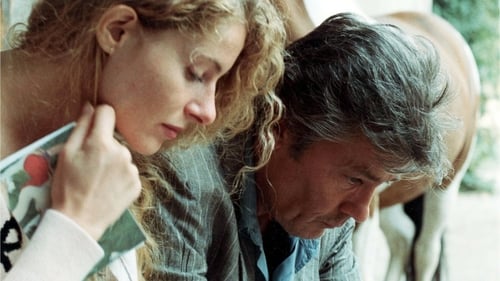
Art Direction
Composed entirely of literary quotations from many different sources and from several historical periods, the loose narrative concerns a drifter found by a rich woman who soon falls in love with him. A drowning accident takes place and the drifter dies, but some time later he reappears in the woman’s life looking for a job. Or could it be the man’s twin brother?

Director

Editor
From birth to death every subject remains intact. Three ages, three women. Daughter, mother, grandmother. Each of them before and after still and always. And the men too, those they meet those they love.

Writer
From birth to death every subject remains intact. Three ages, three women. Daughter, mother, grandmother. Each of them before and after still and always. And the men too, those they meet those they love.

Director
From birth to death every subject remains intact. Three ages, three women. Daughter, mother, grandmother. Each of them before and after still and always. And the men too, those they meet those they love.

Mamzelle Clio
A daring deconstruction of consumerist behavior featuring a robot and Miss Clio Darty, with a voiceover by Godard and Anne-Marie Miéville, this philosophical "report," like so many of Godard's commissions, was rejected by its funders.

Director
A daring deconstruction of consumerist behavior featuring a robot and Miss Clio Darty, with a voiceover by Godard and Anne-Marie Miéville, this philosophical "report," like so many of Godard's commissions, was rejected by its funders.

Writer
"Miéville captures a moment of disquieting intimacy amid the bustle of a parade." - BAM

Director
"Miéville captures a moment of disquieting intimacy amid the bustle of a parade." - BAM

Editor
Estrenada junto con "Yo te saludo, María" de Jean-Luc Godard, "El libro de María" es un mediometraje sobre cómo la separación de unos padres afecta a su hija Marie.

Writer
Estrenada junto con "Yo te saludo, María" de Jean-Luc Godard, "El libro de María" es un mediometraje sobre cómo la separación de unos padres afecta a su hija Marie.

Director
Estrenada junto con "Yo te saludo, María" de Jean-Luc Godard, "El libro de María" es un mediometraje sobre cómo la separación de unos padres afecta a su hija Marie.
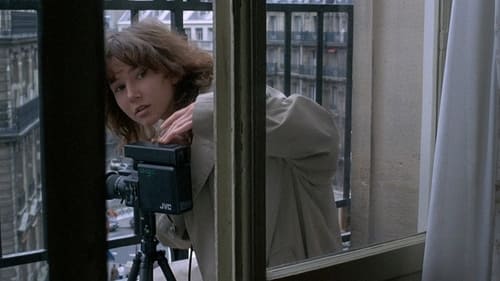
Screenplay
Emile Chenal and his wife, Françoise, leaned on boxing manager Jim Fox Warner to cough up the considerable sum of money that he owes them, with both the police and the mob circling the situation. In the same hotel, Inspector Neveu looks into a murder that took place years before, and his storyline overlaps with the arc of the Chenals.
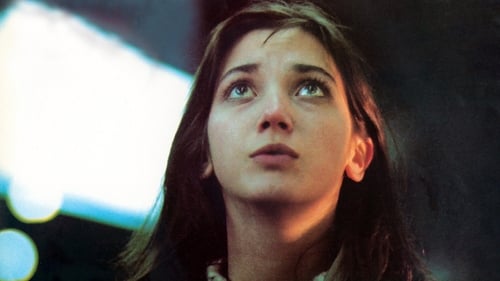
Editor
María es una joven normal que juega al baloncesto y que ayuda a su padre en una gasolinera. Un día María descubre un día que está embarazada, a pesar de no haberse acostado con ningún hombre, ni siquiera con su novio José, un taxista que no puede creerse que pueda tener un hijo siendo su novia virgen.
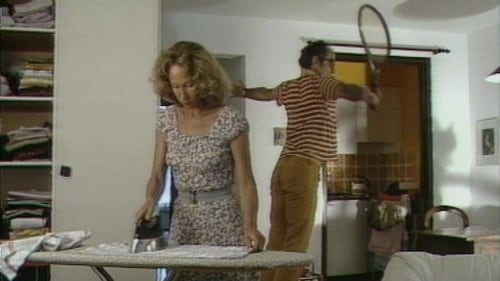
Editor
Jean-Luc Godard and Anne-Marie Miéville talk about their films, while doing everyday tasks around their house.

Writer
Jean-Luc Godard and Anne-Marie Miéville talk about their films, while doing everyday tasks around their house.

Director
Jean-Luc Godard and Anne-Marie Miéville talk about their films, while doing everyday tasks around their house.

Herself
Jean-Luc Godard and Anne-Marie Miéville talk about their films, while doing everyday tasks around their house.

Writer
Durante un fallido atraco a un banco, en el que participa la terrorista Carmen, Antonio, un guardia de seguridad, intenta seducirla. Para evitar ser arrestada, ella aparenta corresponder a su pretendiente, y ambos se refugian en un apartamento. Sin embargo, Carmen sigue vinculada al terrorismo, y el próximo objetivo de la banda es un secuestro.

Scenario Writer
Durante un fallido atraco a un banco, en el que participa la terrorista Carmen, Antonio, un guardia de seguridad, intenta seducirla. Para evitar ser arrestada, ella aparenta corresponder a su pretendiente, y ambos se refugian en un apartamento. Sin embargo, Carmen sigue vinculada al terrorismo, y el próximo objetivo de la banda es un secuestro.

Self
Notes on the inception and making of Hail Mary.

Editor
"One Woman, five men, five breakups." - BAM

Writer
"One Woman, five men, five breakups." - BAM

Director
"One Woman, five men, five breakups." - BAM

Script Consultant
Although there are women in the lives of the three main protagonists -- a middle-aged architect, his construction designer, and a journalist -- the women are not as crucial to the men's search for an identity as the title might suggest. When the three men run into a former professor of the architect and designer, they are inspired by his fanfare and expansive nature. Still in search of solutions to their particular problems, the men head out to visit the professor and get to the bottom of their own issues. Unfortunately, the professor turns out to be more "loco" than otherwise, and the three men watch their hopes burst like a popped balloon -- it seems like their ability to assess human character should now be added to their list of problem spots.

Still Photographer
Although there are women in the lives of the three main protagonists -- a middle-aged architect, his construction designer, and a journalist -- the women are not as crucial to the men's search for an identity as the title might suggest. When the three men run into a former professor of the architect and designer, they are inspired by his fanfare and expansive nature. Still in search of solutions to their particular problems, the men head out to visit the professor and get to the bottom of their own issues. Unfortunately, the professor turns out to be more "loco" than otherwise, and the three men watch their hopes burst like a popped balloon -- it seems like their ability to assess human character should now be added to their list of problem spots.

Self
Producido inicialmente para emitirse en televisión, en este trabajo Jean-Luc Godard habla sobre la práctica del cine y se pregunta sobre el origen de la creatividad. (FILMAFFINITY)
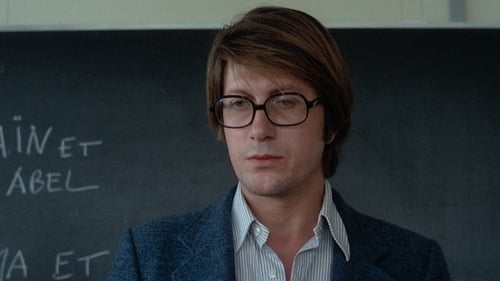
Editor
Una reflexión sobre las relaciones sexuales a través de tres personajes. Denise Rimbaud (Baye) es una editora descontenta con su trabajo que un día decide abandonar a su amante, Paul Godard (Dutronc) e irse a vivir al campo. Paul no quiere abandonar la ciudad, pero no puede vivir sin Denise. El tercer personaje es Isabelle (Huppert), una prostituta que lucha por sobrevivir en la ciudad.

Screenplay
Una reflexión sobre las relaciones sexuales a través de tres personajes. Denise Rimbaud (Baye) es una editora descontenta con su trabajo que un día decide abandonar a su amante, Paul Godard (Dutronc) e irse a vivir al campo. Paul no quiere abandonar la ciudad, pero no puede vivir sin Denise. El tercer personaje es Isabelle (Huppert), una prostituta que lucha por sobrevivir en la ciudad.

Scenario Writer
Una reflexión sobre las relaciones sexuales a través de tres personajes. Denise Rimbaud (Baye) es una editora descontenta con su trabajo que un día decide abandonar a su amante, Paul Godard (Dutronc) e irse a vivir al campo. Paul no quiere abandonar la ciudad, pero no puede vivir sin Denise. El tercer personaje es Isabelle (Huppert), una prostituta que lucha por sobrevivir en la ciudad.

Director
The parents' violence on their children. Father and mother can each have hidden violence in the family universe.
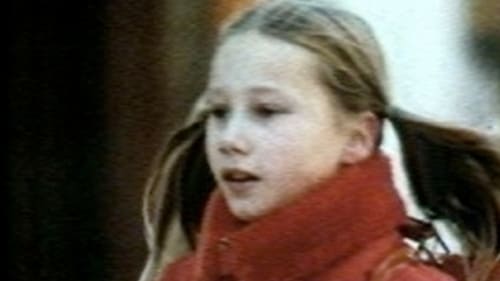
Director
In this astonishing twelve-part project for and about television — the title of which refers to a 19th-century French primer Le tour de la France par deux enfants — Godard and Miéville take a detour through the everyday lives of two children in contemporary France.

Editor
Here and Elsewhere takes its name from the contrasting footage it shows of the fedayeen and of a French family watching television at home. Originally shot by the Dziga Vertov Group as a film on Palestinian freedom fighters, Godard later reworked the material alongside Anne-Marie Miéville.

Writer
Here and Elsewhere takes its name from the contrasting footage it shows of the fedayeen and of a French family watching television at home. Originally shot by the Dziga Vertov Group as a film on Palestinian freedom fighters, Godard later reworked the material alongside Anne-Marie Miéville.

Narrator (voice)
Here and Elsewhere takes its name from the contrasting footage it shows of the fedayeen and of a French family watching television at home. Originally shot by the Dziga Vertov Group as a film on Palestinian freedom fighters, Godard later reworked the material alongside Anne-Marie Miéville.

Producer
Here and Elsewhere takes its name from the contrasting footage it shows of the fedayeen and of a French family watching television at home. Originally shot by the Dziga Vertov Group as a film on Palestinian freedom fighters, Godard later reworked the material alongside Anne-Marie Miéville.

Director
Here and Elsewhere takes its name from the contrasting footage it shows of the fedayeen and of a French family watching television at home. Originally shot by the Dziga Vertov Group as a film on Palestinian freedom fighters, Godard later reworked the material alongside Anne-Marie Miéville.
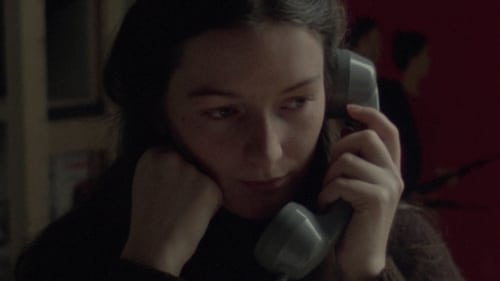
Producer
A film about politics and the media, in which two workers in a newspaper plant attempt to make a film.

Odette
A film about politics and the media, in which two workers in a newspaper plant attempt to make a film.

Writer
A film about politics and the media, in which two workers in a newspaper plant attempt to make a film.

Director
A film about politics and the media, in which two workers in a newspaper plant attempt to make a film.

Director
The title and subtitle of this French miniseries are “Six Times Two; Over and under the media”. The “six” refers to the fact that there are six episodes; the “two” has a double meaning.

The title and subtitle of this French miniseries are “Six Times Two; Over and under the media”. The “six” refers to the fact that there are six episodes; the “two” has a double meaning.
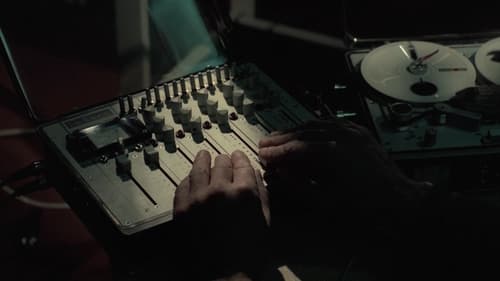
Writer
Jean-Luc Godard mixes video and film in his Grenoble studio, discussing how he secured funding for the film. The action unfolds on two monitors, as a young working-class couple lives in a claustrophobic, high-rise apartment complex and marital discord is set off by the wife’s infidelity.
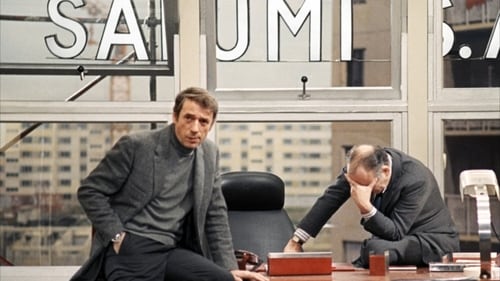
Still Photographer
Francia después del mayo del '68. Un matrimonio en crisis, en una sociedad en crisis, se queda atrapado en una fábrica debido a la huelga de los trabajadores. Godard disecciona la estructura de la sociedad, del cine, el amor y la revolución. ¿Puede el amor sobrevivir a la revolución?

















